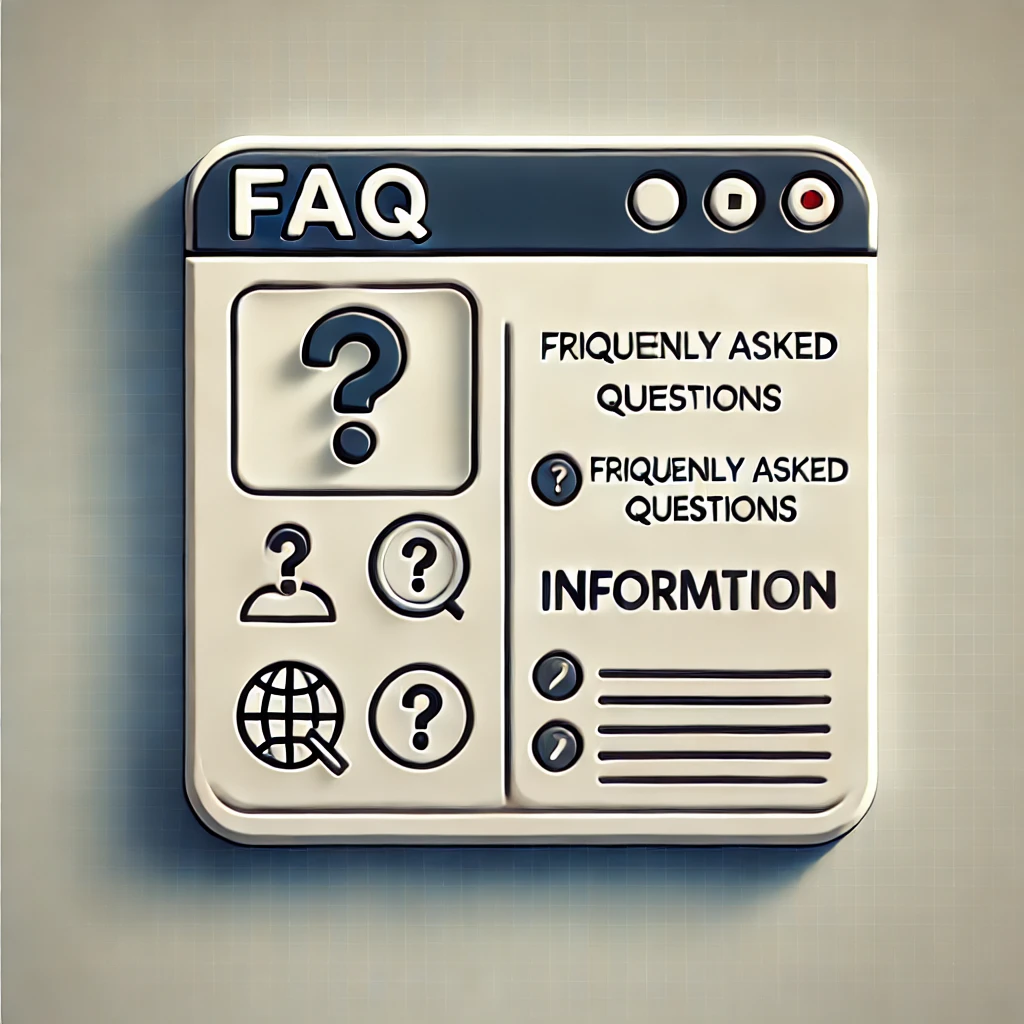In the digital age, where customers seek instant answers and quick solutions, a Frequently Asked Questions (FAQ) section has become a vital component of any website. This section serves as a centralized resource that addresses common questions and concerns that customers may have about a business, its products or services, policies, processes, and more. An effective FAQ page can enhance the user experience, reduce customer support inquiries, and build trust with potential clients.
What is a Frequently Asked Questions (FAQ) Section?
A Frequently Asked Questions (FAQ) section is a dedicated part of a website where businesses provide answers to the most common questions that their customers might ask. These questions can range from basic inquiries about product features and pricing to more detailed explanations of company policies, shipping information, return processes, and technical support.
The FAQ section is designed to be easily accessible and straightforward, offering clear and concise answers that help customers quickly find the information they need without having to contact customer support. This not only improves the customer experience but also allows businesses to address common concerns proactively.
Why an FAQ Section is Important
An FAQ section is more than just a convenience; it plays a crucial role in enhancing the overall effectiveness of a website and the customer experience. Here’s why it’s important:
- Improves Customer Experience: An FAQ section provides quick and easy access to important information, helping customers find answers without needing to wait for a response from customer support. This immediate access can greatly improve the user experience and satisfaction.
- Reduces Customer Support Load: By addressing common questions upfront, an FAQ section can significantly reduce the number of inquiries directed to customer support teams. This allows support staff to focus on more complex issues and improves overall efficiency.
- Builds Trust and Credibility: A well-organized and comprehensive FAQ section demonstrates that a business is transparent and customer-focused. It shows that the company anticipates customer needs and is committed to providing clear, honest information.
- Enhances SEO and Site Navigation: FAQs often include keywords and phrases that customers commonly use when searching for information online. This can improve the website’s search engine optimization (SEO) and make it easier for potential customers to find the site through organic search.
- Supports the Sales Process: For potential customers who are in the decision-making phase, an FAQ section can provide the final pieces of information needed to make a purchase. By answering questions about pricing, product features, and return policies, the FAQ can help overcome objections and close sales.
- Clarifies Policies and Procedures: Businesses often have specific policies and procedures that customers need to understand, such as return policies, shipping times, and payment methods. The FAQ section is an ideal place to clarify these details, reducing the likelihood of misunderstandings or disputes.
How to Create an Effective FAQ Section
Creating an effective FAQ section involves more than just listing common questions. It requires thoughtful organization, clear communication, and a focus on the customer’s needs. Here are some tips for creating a successful FAQ section:
- Identify Common Questions: Start by gathering common questions from customer support interactions, feedback forms, and sales inquiries. Focus on the questions that are asked most frequently, as these are the ones that will be most useful to your audience.
- Organize by Category: Group related questions into categories, such as “Shipping and Delivery,” “Product Information,” “Returns and Exchanges,” and “Account Management.” This makes it easier for customers to find the information they’re looking for.
- Keep Answers Clear and Concise: Write answers in plain language, avoiding jargon or overly technical terms. The goal is to provide clear, straightforward information that any customer can understand.
- Use a Search Function: If your FAQ section is extensive, consider adding a search bar that allows customers to quickly find specific questions or topics. This improves usability and ensures that customers can easily locate the information they need.
- Include Links to Additional Resources: Where applicable, provide links to related resources, such as detailed guides, video tutorials, or relevant product pages. This allows customers to explore the topic further if they need more information.
- Regularly Update the FAQ: As your business evolves, so will the questions your customers have. Regularly review and update the FAQ section to ensure that the information remains accurate and relevant.
- Make It Easy to Find: Place a link to the FAQ section in prominent locations on your website, such as in the main navigation menu, footer, or customer support page. This ensures that customers can easily access the information.
Examples of Common FAQ Topics
While the specific questions in an FAQ section will vary depending on the business, some common topics include:
- Product Information: Details about product features, specifications, and usage instructions.
- Ordering and Payment: Information on how to place an order, accepted payment methods, and billing issues.
- Shipping and Delivery: Details on shipping options, delivery times, and tracking orders.
- Returns and Exchanges: Guidelines for returning products, exchange policies, and refund processes.
- Account Management: Instructions on creating, managing, and closing user accounts.
- Technical Support: Solutions for common technical issues, troubleshooting tips, and contact information for further assistance.
A Frequently Asked Questions (FAQ) section is an essential part of any website, providing customers with quick access to important information and enhancing their overall experience. By addressing common questions upfront, businesses can reduce the burden on customer support, build trust with their audience, and improve their website’s usability and SEO. With careful planning and regular updates, an effective FAQ section can become a valuable resource for both customers and the business, contributing to long-term success.




